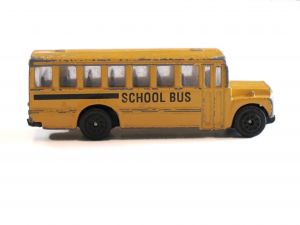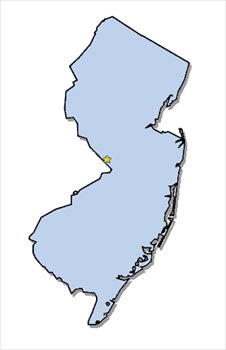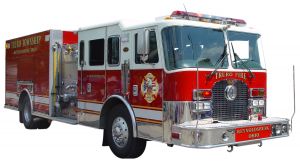By Robert Fernicola, Attorney and David Wolf, Attorney
Published by Child Injury Lawyer Network
 In New Jersey, child care centers and day care centers are regulated by the Department of Human Resources and the Child Care Licensing Laws. There are specific rules / regulations pertaining to field trips and keeping track of children in and outside of the day care centers under the New Jersey Administrative Code (N.J.A.C. Chapter 10: 10:122-4.3.).
In New Jersey, child care centers and day care centers are regulated by the Department of Human Resources and the Child Care Licensing Laws. There are specific rules / regulations pertaining to field trips and keeping track of children in and outside of the day care centers under the New Jersey Administrative Code (N.J.A.C. Chapter 10: 10:122-4.3.).
 Child Injury Lawyer Blog
Child Injury Lawyer Blog


 Four year old John-Paul Massey of Liverpool, England, was being watched by his grandmother, Helen Foulkes, while his mother was out on a date. Some time that evening he was mauled to death by the family’s pet Bull Terrier. Ms. Foulkes tried to pull the boy out of the dog’s jaws, but was unsuccessful. Ms. Foulkes suffered some bite marks. She was treated and released from the hospital. When police arrived they shot the animal on the spot. The attack took place at a house where police had been warned that illegal dog-breeding was taking place.
Four year old John-Paul Massey of Liverpool, England, was being watched by his grandmother, Helen Foulkes, while his mother was out on a date. Some time that evening he was mauled to death by the family’s pet Bull Terrier. Ms. Foulkes tried to pull the boy out of the dog’s jaws, but was unsuccessful. Ms. Foulkes suffered some bite marks. She was treated and released from the hospital. When police arrived they shot the animal on the spot. The attack took place at a house where police had been warned that illegal dog-breeding was taking place. In New Jersey, child care centers and day care centers are regulated by the Department of Human Resource and the Child Care Licensing Laws. There are specific rules / regulations pertaining to injuries sustained by a child while under the care of the child care center / day care center under the New Jersey Administrative Code (N.J.A.C. Chapter 10: 10:122-7.6. In particular, a day care center is required to take immediate steps to protect a child from further harm and to contact the parents verbally when certain injuries take place in a child care center. Injuries that must be reported to the parent include:
In New Jersey, child care centers and day care centers are regulated by the Department of Human Resource and the Child Care Licensing Laws. There are specific rules / regulations pertaining to injuries sustained by a child while under the care of the child care center / day care center under the New Jersey Administrative Code (N.J.A.C. Chapter 10: 10:122-7.6. In particular, a day care center is required to take immediate steps to protect a child from further harm and to contact the parents verbally when certain injuries take place in a child care center. Injuries that must be reported to the parent include:
 In Michigan, Governor Jennifer Granholm signed a law into effect to help distinguish or define babysitting from required day care licensing. The law states that babysitting is exempt from Michigan licensing and regulation if the babysitting is provided for free or involves less than $600.00 per year of annual payment or income. See
In Michigan, Governor Jennifer Granholm signed a law into effect to help distinguish or define babysitting from required day care licensing. The law states that babysitting is exempt from Michigan licensing and regulation if the babysitting is provided for free or involves less than $600.00 per year of annual payment or income. See  The House of Representatives recently passed its version of the Healthcare Reform bill (HR 3962). Parents and guardians of special needs children will most likely benefit from two aspects of the bill: health insurance companies would no longer be able to deny coverage based on pre-existing conditions, and the public insurance exchange option. Of course, the Senate still has to pass its own version of the bill, and the two bills will have to be blended together and voted on again – but so far the news looks good for children with special needs.
The House of Representatives recently passed its version of the Healthcare Reform bill (HR 3962). Parents and guardians of special needs children will most likely benefit from two aspects of the bill: health insurance companies would no longer be able to deny coverage based on pre-existing conditions, and the public insurance exchange option. Of course, the Senate still has to pass its own version of the bill, and the two bills will have to be blended together and voted on again – but so far the news looks good for children with special needs.
 The Lewiston (Maine) Sun Journal reports that an early morning fire claimed the life of 9-year old Taylor McQueeney. A candle used as a light source, after the Central Maine Power Company shut off the electricity to the apartment for non-payment, ignited a bed. The fire spread quickly. Taylor McQueeney had spent the night with her cousins, 18-year old Nathan Cote and 25-year old Justin Cote. Craig Austin, age 39, rented the apartment. According to police, the men ran an extension cord from a second floor apartment up to their third floor apartment to power a television and video games, but used candles for light.
The Lewiston (Maine) Sun Journal reports that an early morning fire claimed the life of 9-year old Taylor McQueeney. A candle used as a light source, after the Central Maine Power Company shut off the electricity to the apartment for non-payment, ignited a bed. The fire spread quickly. Taylor McQueeney had spent the night with her cousins, 18-year old Nathan Cote and 25-year old Justin Cote. Craig Austin, age 39, rented the apartment. According to police, the men ran an extension cord from a second floor apartment up to their third floor apartment to power a television and video games, but used candles for light.
 California day care centers / child care centers are regulated by the State of California – Health and Human Services Agency – Department of Social Services. The California Child Care Regulations cover a wide area of matters including but not limited to operation, maintenance, supervision, and enrollment. The regulations can be accessed online at
California day care centers / child care centers are regulated by the State of California – Health and Human Services Agency – Department of Social Services. The California Child Care Regulations cover a wide area of matters including but not limited to operation, maintenance, supervision, and enrollment. The regulations can be accessed online at